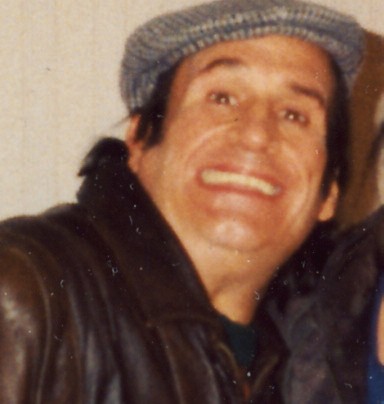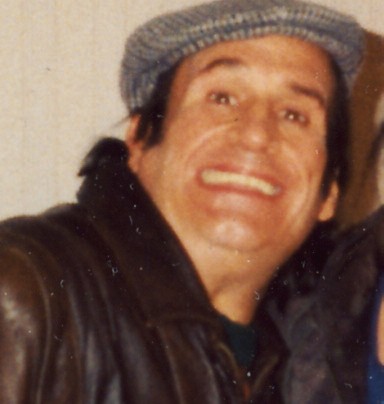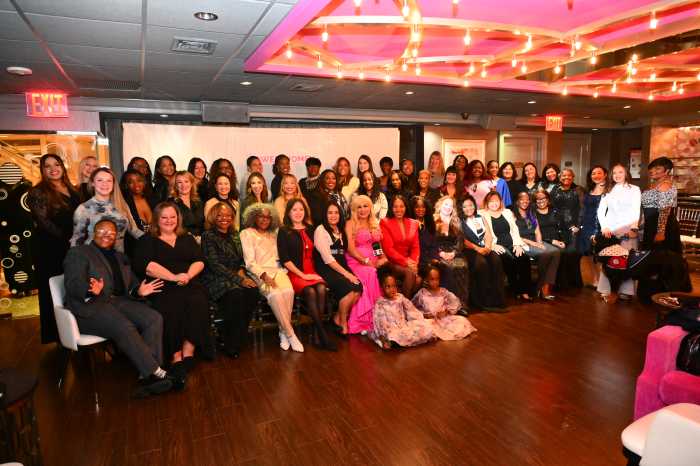Sensing Changes In Atmosphere
Keisha Baxter, a LaGuardia Community College civil engineering student, will not be spending the summer in the open air, but researching air quality in a lab as a participant in a highly competitive City University of New York research program.

Baxter is among 10 CUNY undergraduate students, and the only woman, to be selected to participate in the National Science Foundation Research Experiences for Undergraduates (REU) in Satellite and Ground-Based Remote Sensing Project at the National Oceanic and Atmospheric Administration- Cooperative Remote Sensing Science and Technology Center (NOAACREST) at City College.
The program, which is specifically designed for minority students majoring in STEM programs, will have the young researchers, through remote sensing, collect and analyze data culled from data satellites. The students will come away learning all aspects of remote sensing including sensor development, satellite remote sensing, ground-based field measurements, data processing and analysis, modeling and forecasting.
The program’s website spells out its mission: “We expect that through our unique and innovative endeavors many underrepresented minority students who would otherwise not pursue STEM education altogether or would not pursue STEM education through to graduate school level will now choose to follow the STEM corridor to either graduate education or to careers in STEM.”
“This experience is perfect for me because its ties my passion for civil engineering with my interest in protecting the environment,” said Baxter. “I want to be a researcher in the Crest REU program, where I can add my creativity and vision to the team, learning more and being able to apply my insight to the program and later to the vast world of engineering; and be a problem solver and the best civil engineer, teacher and student that I can be.”
While Baxter will be researching air quality, the other student researchers will be looking at pollution, water quality and oceanography. During the nine weeks, she will be collecting and analyzing satellite data and doing mathematical calculations on air quality. She will then return to the lab for three weeks in the fall and again for three weeks in the spring to update her data. Also, during those two three-week periods she will present her research at various conferences such as the American Geological Society and the Emerging Researchers National.
“My experience at LaGuardia has provided me with a rock-solid foundation in the field,” said Baxter, who is maintaining a 3.35 G.P.A. “This research project is the icing on the cake.”
With her superb mathematical skills and motivation, Dr. Zahidur Rahman, her faculty mentor and mathematics professor, is confident that she will thrive in this experience. “She brings to this project her strong intellect, creativity and dedication to whatever challenge she takes on,” he said.
For the 20-year-old, who emigrated to the U.S. from British Guiana in 2006, math was always her strong suit. “When I entered eighth grade, I excelled in mathematics,” said Baxter. “I first found out this was pretty fun stuff.”
In high school she added science as another subject where she stood out. So when it came time to look at colleges, her calculus teacher encouraged her to consider engineering.
“I heard about engineering, but I didn’t know what it was,” Baxter said with a laugh. “But after researching the field and learning it had a heavy focus on math and science, I couldn’t see myself doing anything else. It seemed perfect.”
Choosing LaGuardia over colleges in Arizona and Florida, Baxter enrolled in the civil engineering program in the spring of 2012. “I knew LaGuardia was the right choice for me and where my journey to becoming a civil engineer would begin,” she said.
She jumped right into the college experience, taking six classes her first semester. When her engineering lab professor invited her to join his research project that was looking at the effects vibrational therapy has on patients with osteoporosis, she eagerly accepted. To analyze the response of osteoporosis bone specs to vibrational therapy, she learned the computer program, Comsol.
“Participating in this program allowed me to learn about the importance of computer-aided modeling and the great part it plays in aiding our research,” she said. “I also learned the ethics, discipline and time management associated with research work.”
While concentrating on her studies, she finds time to tutor students in math and to teach a lab section to four classes about the application of mathematics. “I strongly believe that people who have acquired knowledge in a particular subject should share it with others,” she said.
She also is the Engineering Club Student’s Association representative.
Baxter will be graduating in June, and through LaGuardia’s articulation program with City College, she will pursue her bachelor’s degree in structural or environmental specialization. Upon receiving her bachelor’s degree, she will become a CREST scholar where the program will cover her tuition costs at the graduate level. Thereafter, she can have a professional career opportunity at NOAA and/or other federal, state and local agencies, academia and industries.
“It has been a wonderful road, and LaGuardia and its professors got me on that road to a civil engineering degree and a career in the field,” said Baxter. “I encourage other students, especially minority students, to take advantage of all the amazing opportunities that are available to them.”



































